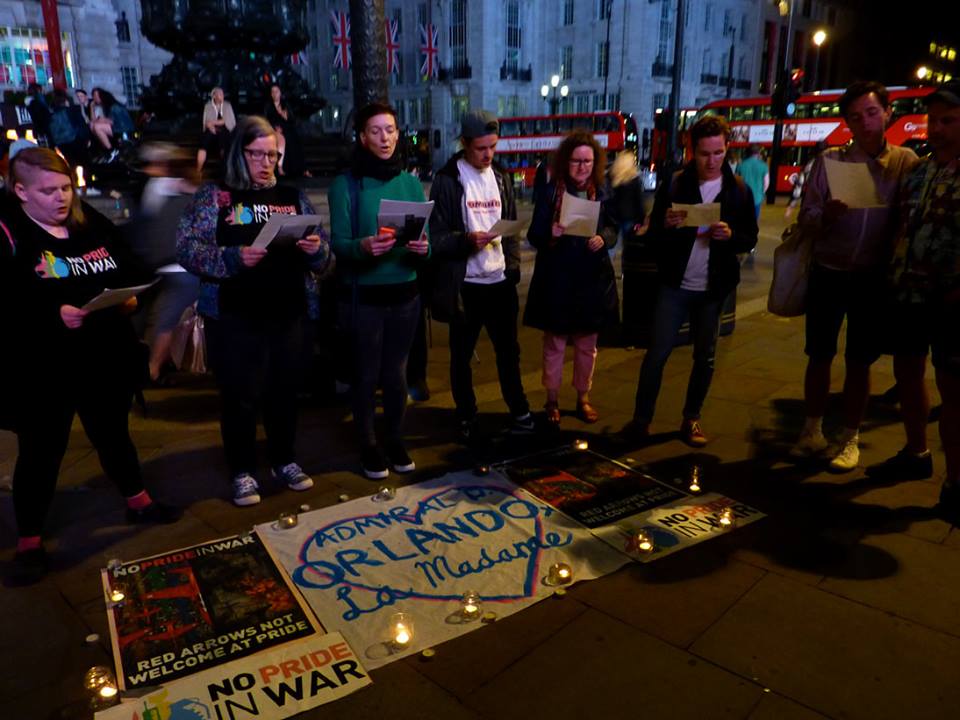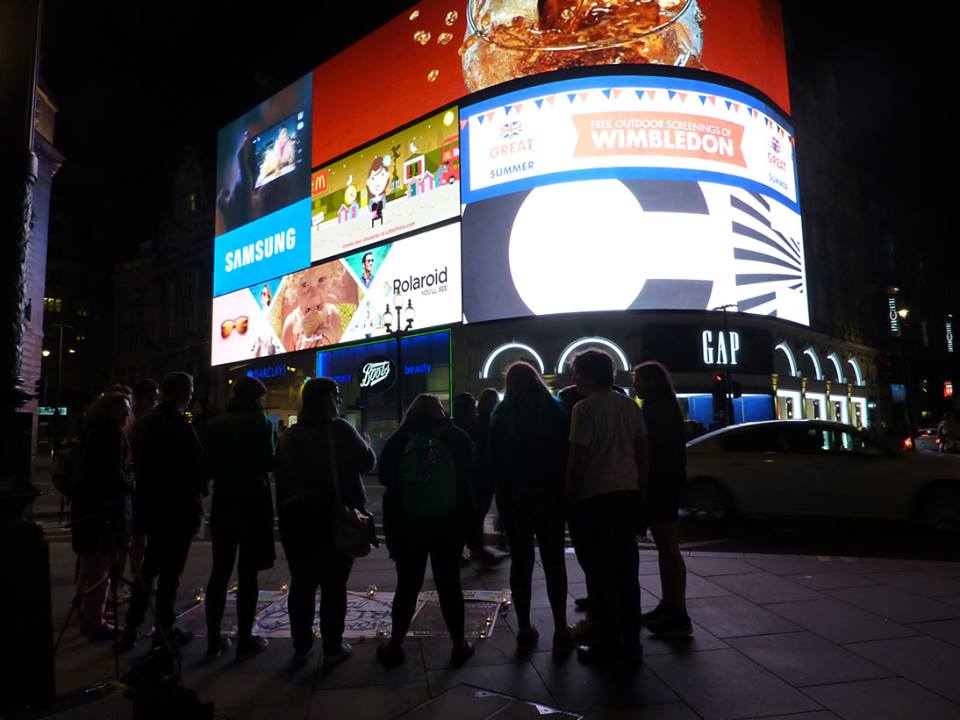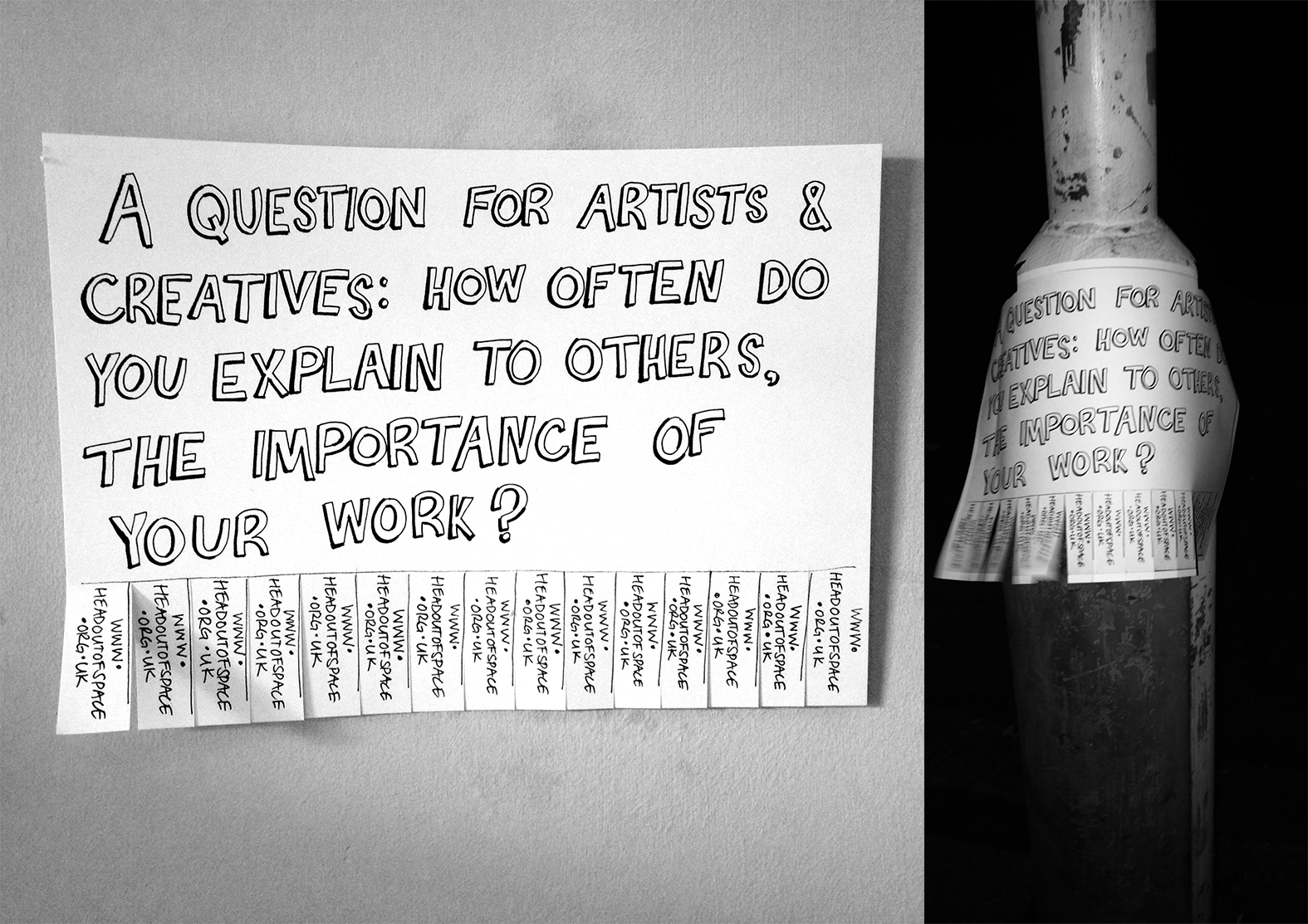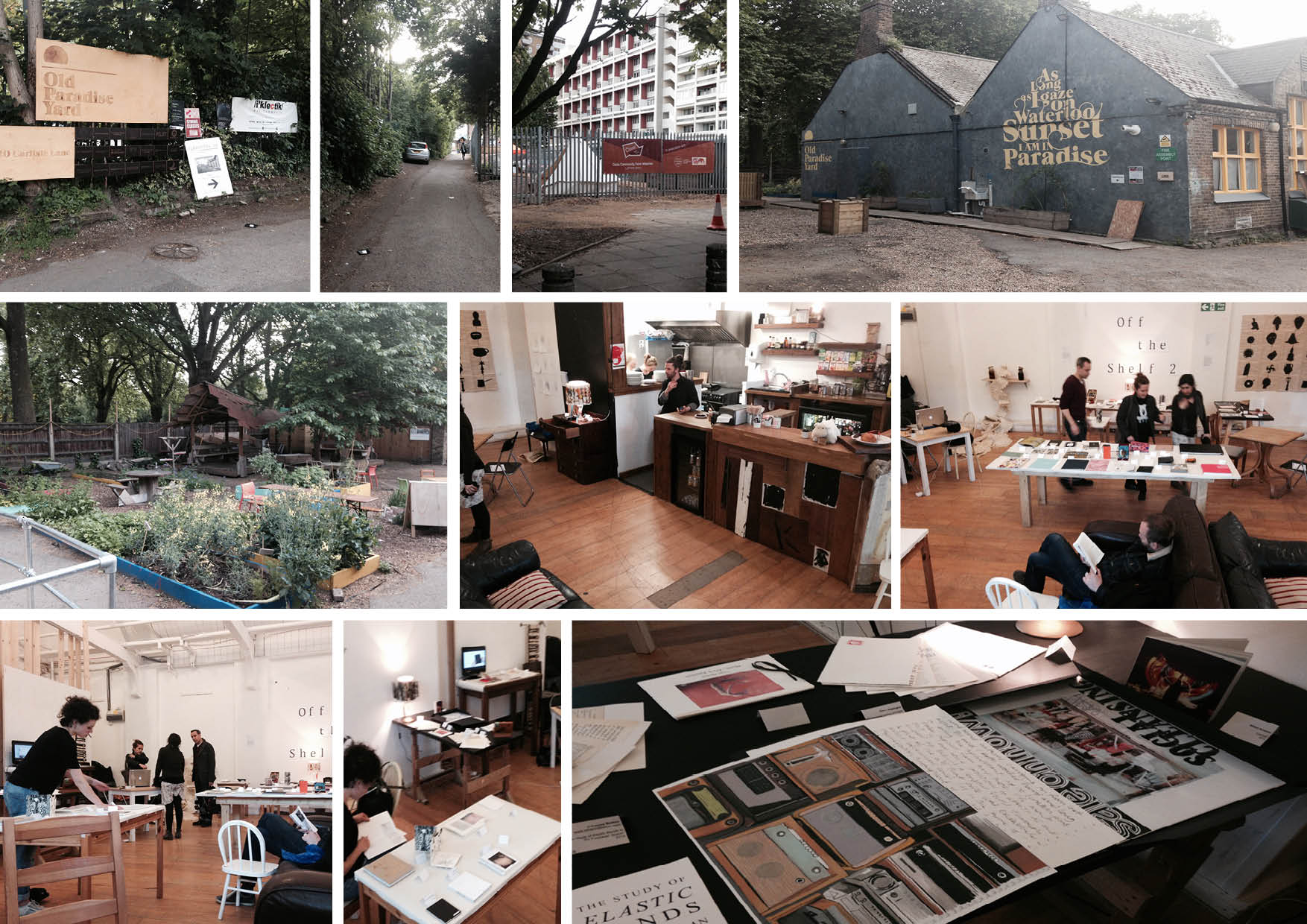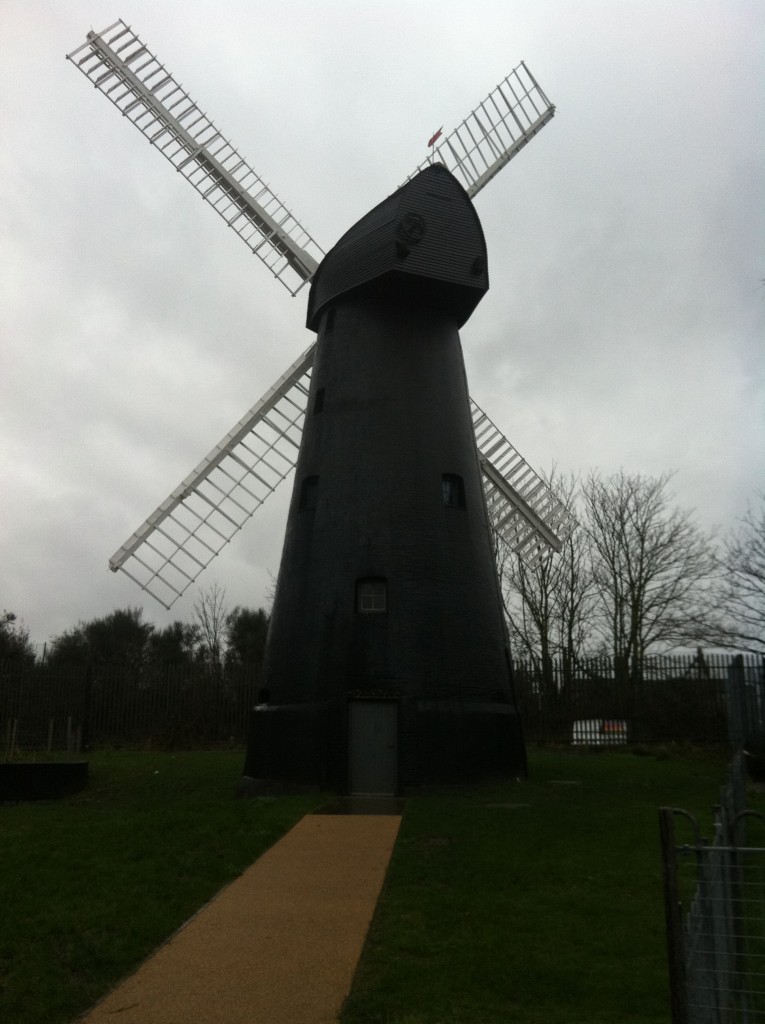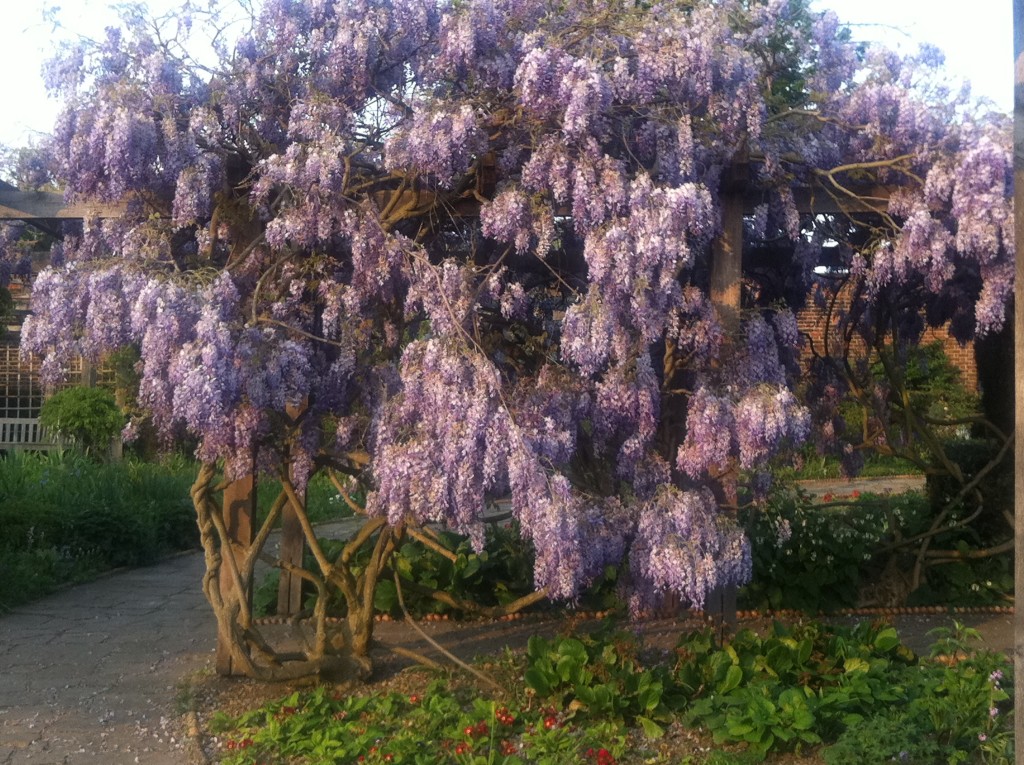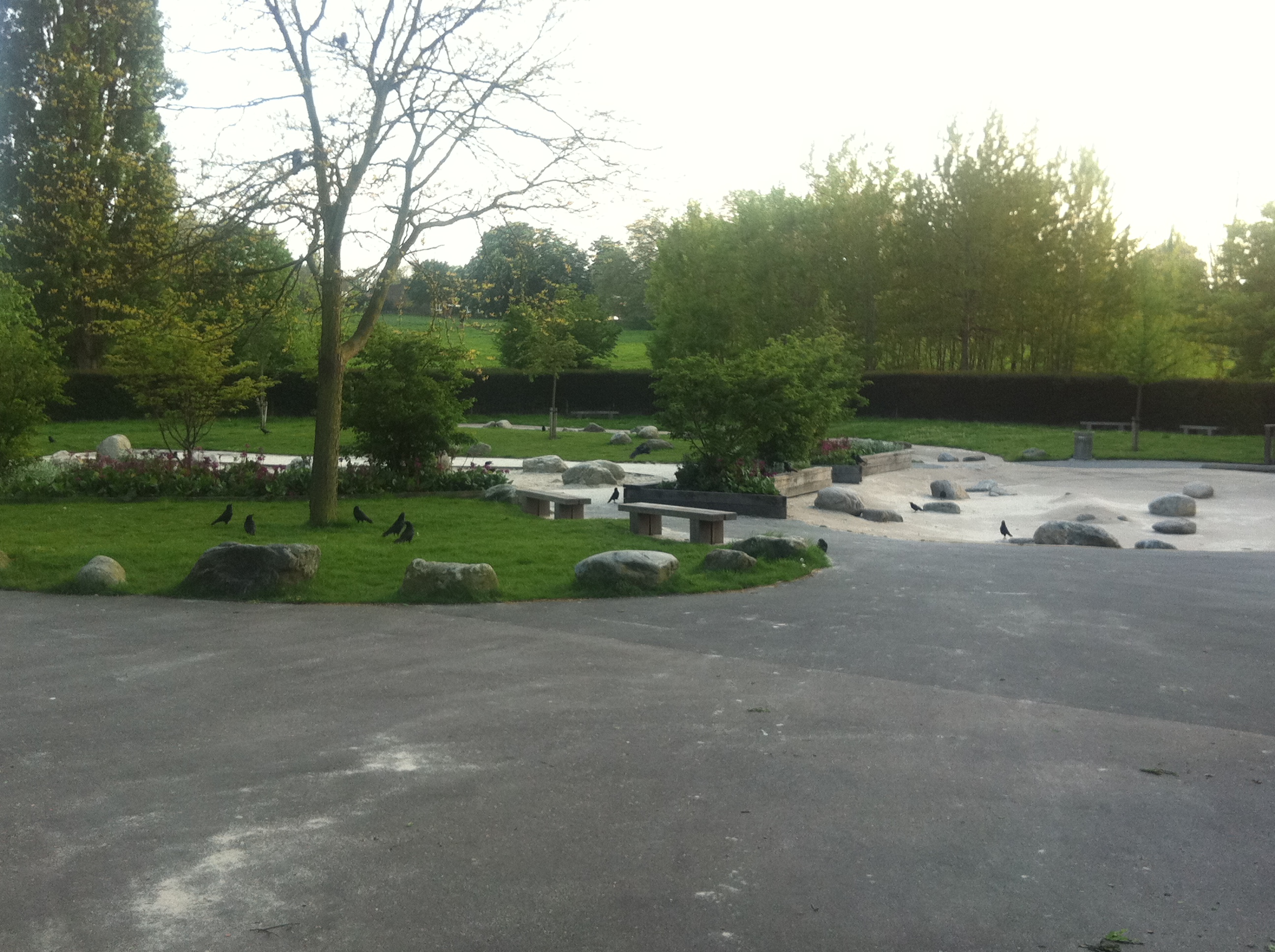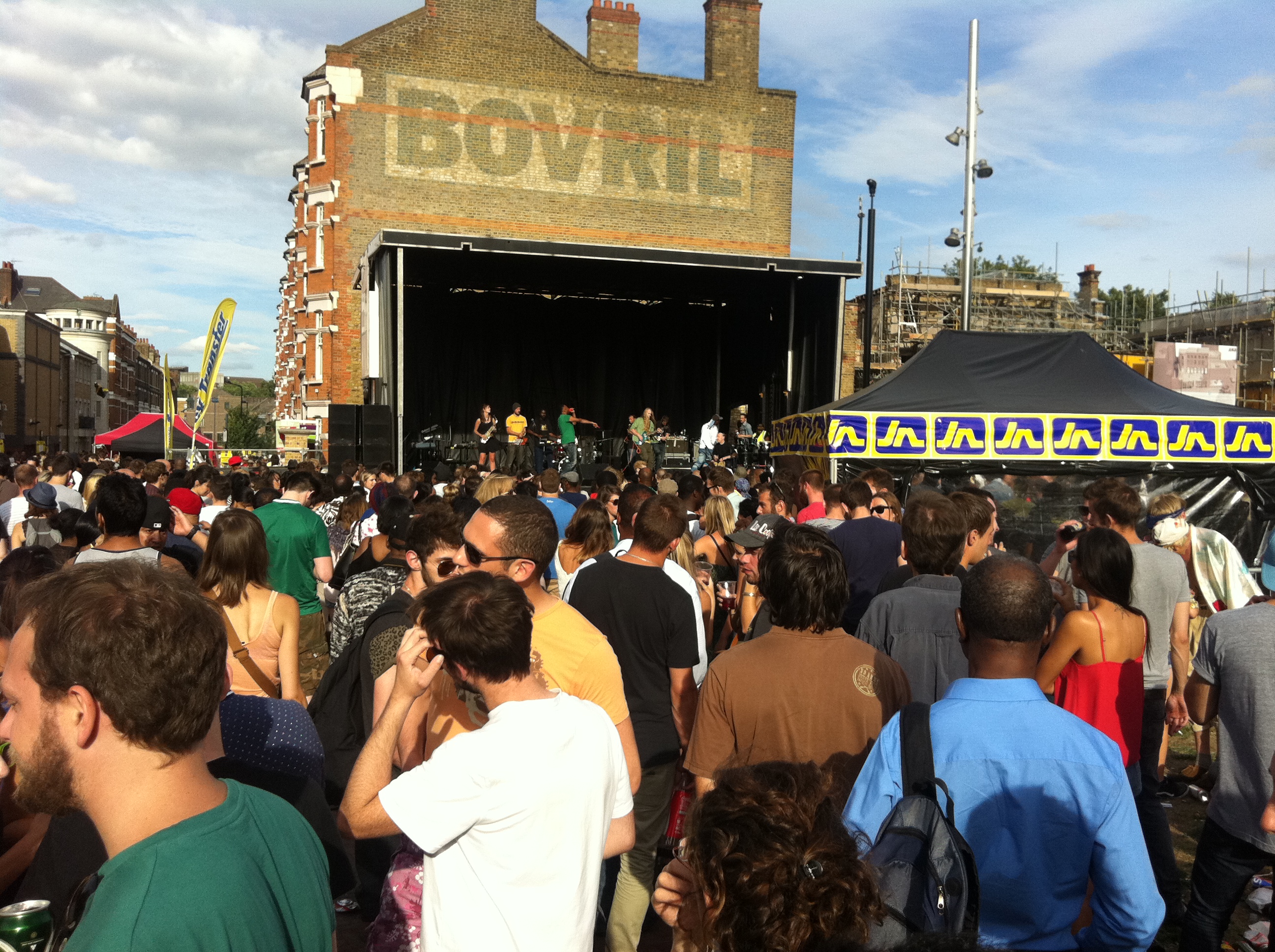In the Name of David Kato
With urgency, we must come together as international human rights allies, to continue to make positive change happen. This was the collective message repeated by activists and human rights champions at ‘Silence = 40’, a panel event organised by ACT UP London and hosted at the Royal Vauxhall Tavern on 5 February. In memory of the ground-breaking work of Ugandan LGBTQIA+ and HIV/AIDS activist, David Kato, members of the LGBTQIA+ community and from various commonwealth nation diasporas, joined in commemorating Kato’s life in the fifth year since his murder.
Kato’s activist legacy and the reality of his absence wrought measurable impact. Our loss of him is a tragedy for the activism he would surely have instigated, as well as being a point of uprising amongst freedom fighters who challenge injustice in his name. He was murdered for being queer; his surviving family, endangered. As Edwin Sesange of Out & Proud Diamond Group (OPDG) stated “The fight claimed his life”.
What have we learnt in David’s absence? Sesange described how OPDG was launched in 2011, driven by refugees and asylum seekers, adamant at speaking out for themselves, instead of being spoken to or about as vulnerable people – a strength perpetuated by Kato’s example. Julius Mutumba of Movement for Justice echoed this sentiment by stating, “We came out in this country (UK). If you come out at home, it is to be killed…but, no one will fight for us unless we fight for ourselves”. The Movement for Justice-led ‘Surround Yarl’s Wood’ campaign, to shut down UK detention centres, has gained excellent momentum, as evidenced in growing public support to confront immigration detention policies. The movement is a contributing factor to the very existence of the recently published and highly damning Shaw Review.
Persecution of loved ones who have not migrated is another grave concern, as intimidation methods and alienation are typically transferred to family members and associates. Recently, OPDG fundraised to give financial support to Kato’s mother, who had been rendered destitute and without food, as there has been no mechanism to provide for her. Sesange highlighted the irony of being able to provide a cash award in Kato’s name, to outstanding activists, yet not to the ruined lives of a family left without their activist breadwinner.
The David Kato Vision and Voice Award serves to speak out in direct response to the injustice of David’s murder and to recognise the brilliant LGBTQIA+ human rights work and leadership achieved by individuals. Kaleidoscope Trust’s Felicity Daly announced that the next recipient would be awarded in 2018, which is also the year of the next Commonwealth Heads of Government Meeting (CHOGM), here in the UK. This will be a critical moment for all LGBTQIA+ human rights groups to lobby toward. Daly stated “We need a positive dialogue across the member states”.
Challenging the Imperialist Legacy
We have arrived at a time of multiple, unquantifiable human catastrophes. There is enough accumulated perspective, to at least state that. But the scale of crises is so great, it is presently impossible to calculate the various atrocities and range of suffering. How can we begin to force political solutions in such an ideologically fraught climate, where common ground between historic rivals is now realised in a place where loathing of LGBTQIA+ people can be shared?
We know not, how many people are infected or dying of HIV/AIDS, and from prejudice-incited murder and oppression. Nigerian LGBTQIA+ activist, Aderonke Apata, is currently campaigning to repeal Nigeria’s anti-gay law. On the topic of HIV/ AIDS transmission, diagnosis and treatment, Apata stressed, “There are no accurate statistics, due to social, legal, and cultural barriers (stigma, discrimination, sexual status and gender inequality). Nonetheless, we have access to stats from UNAIDS: in 2013 nearly 25 million people were living with HIV/AIDS in Sub-Saharan Africa – that’s 71% of the global total. 1.5 million new infections were recorded. There were 1.1 million AIDS related deaths and 39% of adults were on antiretroviral treatment. Data on men who have sex with men (MSM) is extremely limited.”
Despite epidemic and pandemic scales, our commonwealth governments are far from reaching a collective agreement to end the suffering, marginalisation and the criminalisation of LGBTQIA+ communities. History offers some clarification though: we are all inextricably linked and complicit in the fates of one another’s nations. Homosexuality is a criminal offence in 40 Commonwealth nations, because Britain dictated these terms in the era of colonial take-over. From a post-colonial standpoint, the United Kingdom is now obligated with an enormous responsibility to affect a process that definitively addresses the legacy of UK-imposed imperialism on oppressive Commonwealth countries.
UK-based, Jamaican activist and writer, Vernal Scott, firmly stated his disdain in regard to the inhumane treatment LGBTQIA+ persons receive in Jamaica, exclaiming that the country’s “willingness to continue to embrace colonial discrimination is a disgrace”. To us all, he challenged we must each write to our MPs and insist that oppressive, imperialist views are abolished. “We need to be the driver in the car for change”, added Scott.
Whose God?
Homosexuality is not an export of the West, as many African nation right-wing leaders will promote. But evangelical Christian religion is. The vestiges of British, Victorian-era sodomy laws are apparent in the preaching and demonisation of LGBTQIA+ lifestyles by evangelist religious leaders. We heard from African and Caribbean speakers that terrible acts of violence are commonplace, as African citizens and vigil-ante groups are empowered to ‘out’, persecute, lynch or cure through rape, suspected queer people and their affiliates. This is the reality of imperial legacy. This is hate crime, allowed to happen in the global blind spot of our denial. As global citizens, we must challenge these injustices; these crimes against humanity.
A year before his death, ahead of several parliamentary stages for Uganda’s revised, Anti-homosexuality Bill, Kato explained in an interview with Brussels-based Start to Wish: “My argument is, why should Uganda follow the theology of Muslims and Christians to set up laws rather than looking at the scientific, or the reality of issues… what I want the world to see is the hate behind the bill…will Uganda be able to understand the faith-based hate behind the bill? Genocide might come up; we are going to die. Should we wait for that?”. Pressure on President Museveni, from the international community, eventually led to the Bill being annulled. But draconian legislation still exists to punish LGBTQIA+ with imprisonment under the broad definition of what is deemed to be ‘exhibitionism’. The international community had some positive impact here. This fact should serve to fuel collective pressure to fight homophobic persecution. It is nigh-on impossible to engage with people on HIV infection, AIDS, and treatments when people live under stigma and in fear.
Making positive change happen
What are the collective challenges from our activist panel and how are they leading by example? All representatives urged that foreign aid to Africa must not cease. Dani Singer, an activist for ACT UP London, announced a UK-based campaign of Fight AIDS not Migrants involving a series of public actions as well as the commencement of outreach to those who live in the Calais Jungle, where proper HIV assistance is not yet in place. LGSMigrants and Movement for Justice have teamed to launch the first ever Peckham Community Pride on 20 February this year. It promises to be a strongly political event, firmly rooted in social engagement and exploring the intersecting issues for migrants, people threatened by deportation, and LGBTQIA+.
Paul Dillane of UK Lesbian & Gay Immigration Group (UKLGIG) insisted. “We all need to see a British Prime Minister acknowledge the colonial legacy and its impact on LGBTI people, promote the human rights of LGBTI people, and for the UK Government to provide actual support to LGBTI communities, NGOs and activists. A white Prime Minister cannot succeed alone in achieving decriminalisation. Those who are at the frontline deserve our solidarity and support.”
D. Riddington (8 February, 2016)
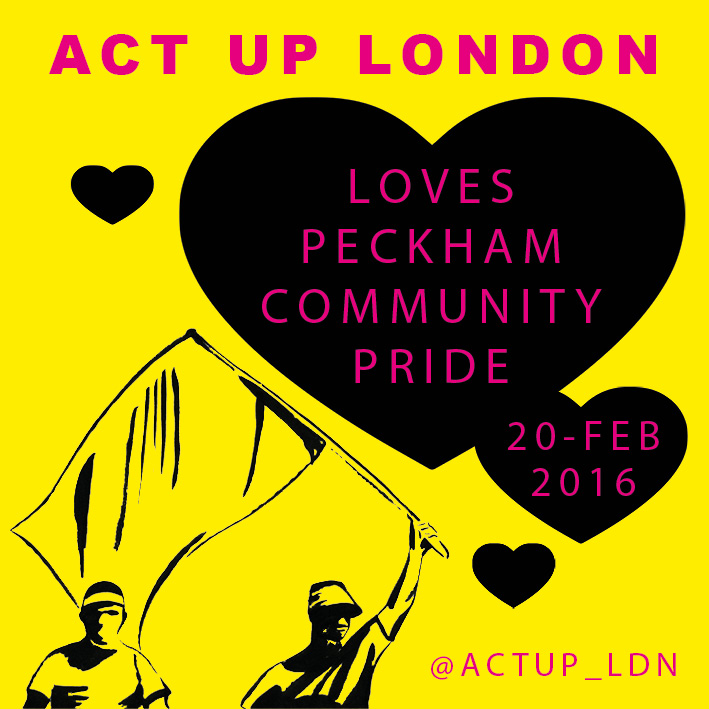
Links:
The UK Lesbian & Gay Immigration Group (UKLGIG) is a charity that promotes equality and dignity for lesbian, gay, bisexual, trans and intersex (LGBTI) people who seek asylum in the UK, or who wish to immigrate to the UK, to be with their same-sex partner.
Lesbian and Gays Support the Migrants (LGSM) is a movement to creatively challenge the right-wing media narrative around migrants and to stand in solidarity with migrants entering the UK. https://www.facebook.com/lgsmigrants/
The Kaleidoscope Trust works to uphold the human rights of lesbian, gay, bisexual and trans people internationally. Kaleidoscope believe that the rights of all people should be respected equally, regardless of their sexual orientation or gender identity. http://kaleidoscopetrust.com/
African Rainbow Family provides support for Lesbian, Gay, Bisexual, Transgender and Queer (LGBTIQ) People of African Heritage http://africanrainbowfamily.org/. Please support the African Rainbow Family campaign at Repeal Nigeria Anti Gay Law.
Aderonke Apata is a Human Rights Activist, Feminist and LGBT Equality Advocate. Her acolades include: Winner of the Positive Role Model for LGBT National Diversity Award 2014; Numbers 41 & 67 on the Ranbow List for 2014 ans 2015, respectively. Diva named her Heroine of the Year in 2015 in recognition of her achievements in the LGBT community. Aderonke is the founder of African Rainbow Family, an LGBT group that supports LGBTIQ asylum seekers and people of African heritage in UK and campaigning for the Repeal of the toxic Nigerian Anti-LGBTIQ Law. She also started Manchester Migrant Solidarity, a self help group offering practical supports and building a powerful political voice against the systematic mistreatment of migrants in the UK. Support Aderonke here https://www.gofundme.com/apataronnie
Movement for Justice By Any Means Necessary (MfJ) are leaders of the growing movement, protesting to shut down detention centres. They have drawn particular mass-public notice to Yarl’s Wood. MfJ are committed to challenging UK immigration policy, racism, unlawful and inhumane detention and deportation. MfJ are “building an independent, integrated, mass, youth and student led civil rights movement.” http://www.movementforjustice.org/
STOPAIDS is a network of UK agencies in operation since 1986 to secure an effective global response to HIV and AIDS. http://stopaids.org.uk/
Out and Proud Diamond Group (OPDG) fight for global equality, and justice for LGBTI persons through campaigns, peaceful protests/demonstrations, lobbying and seminars. OPDG offer support to those facing persecution and integration for those who have fled persecution. www.opdg.org
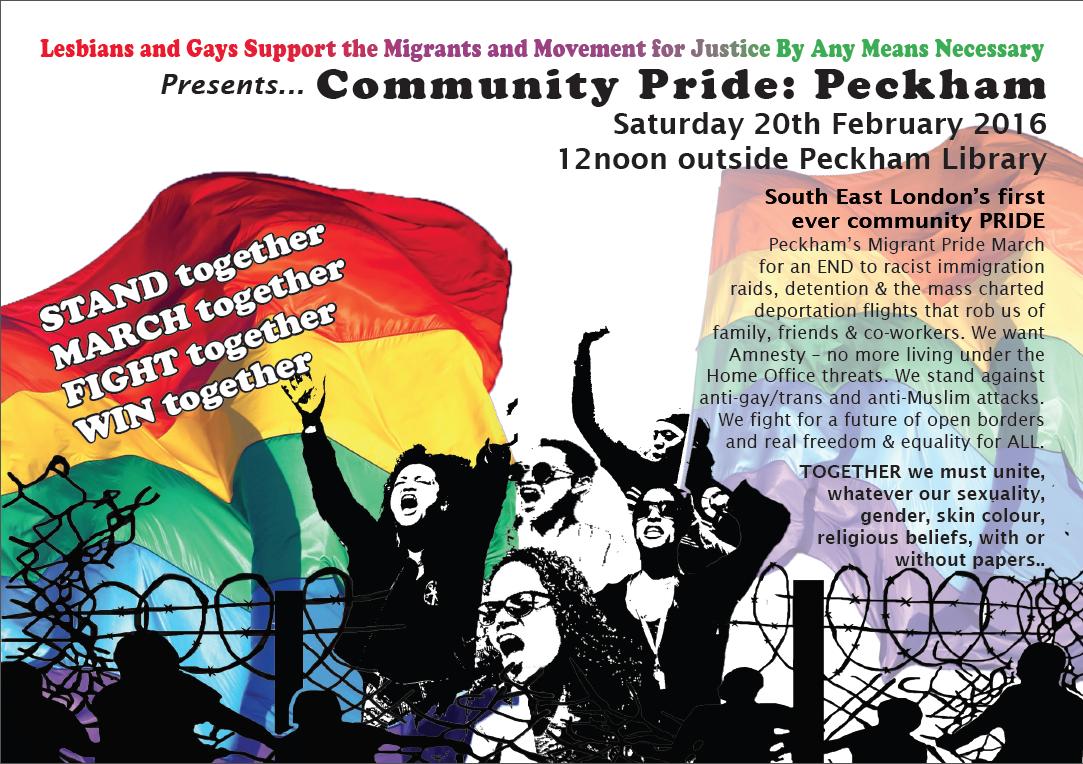
Peckham Community Pride 20 February 2016
